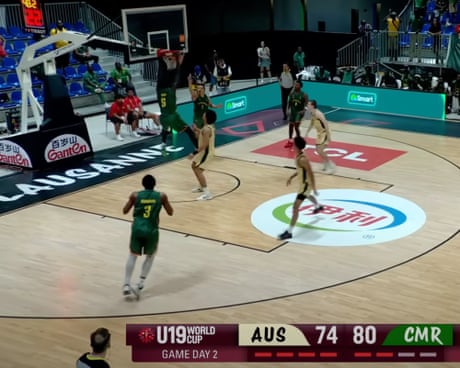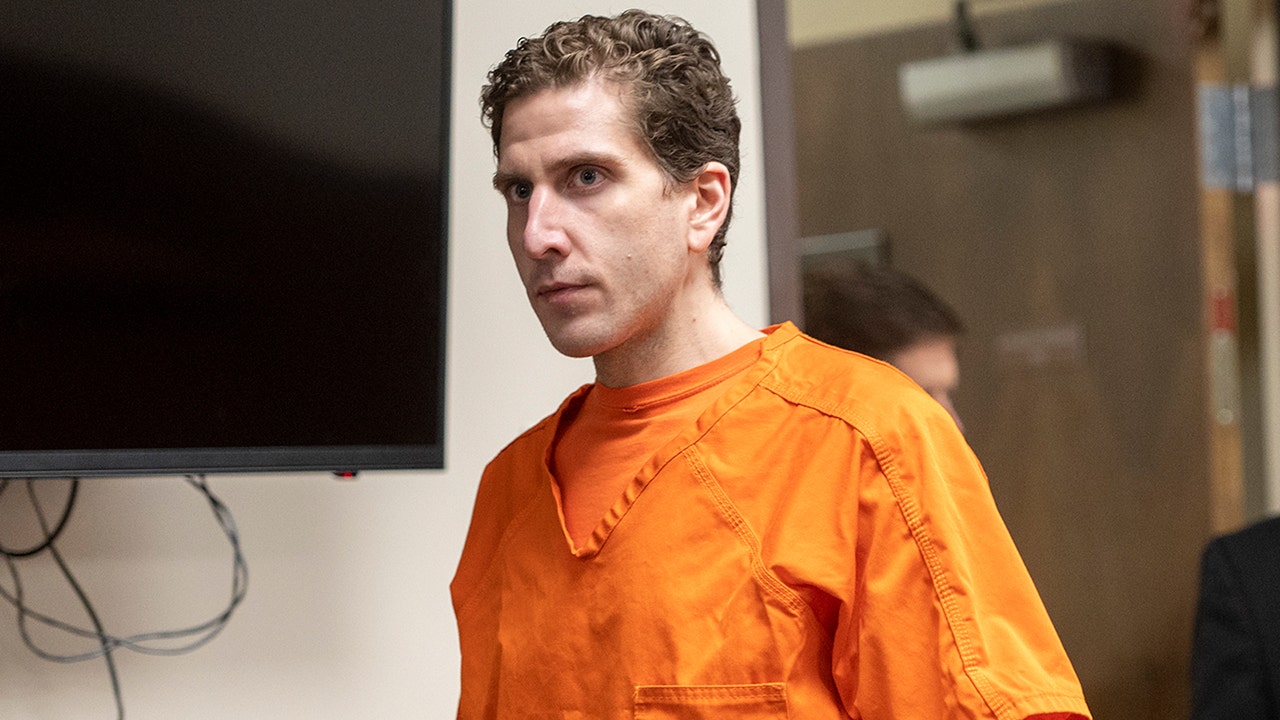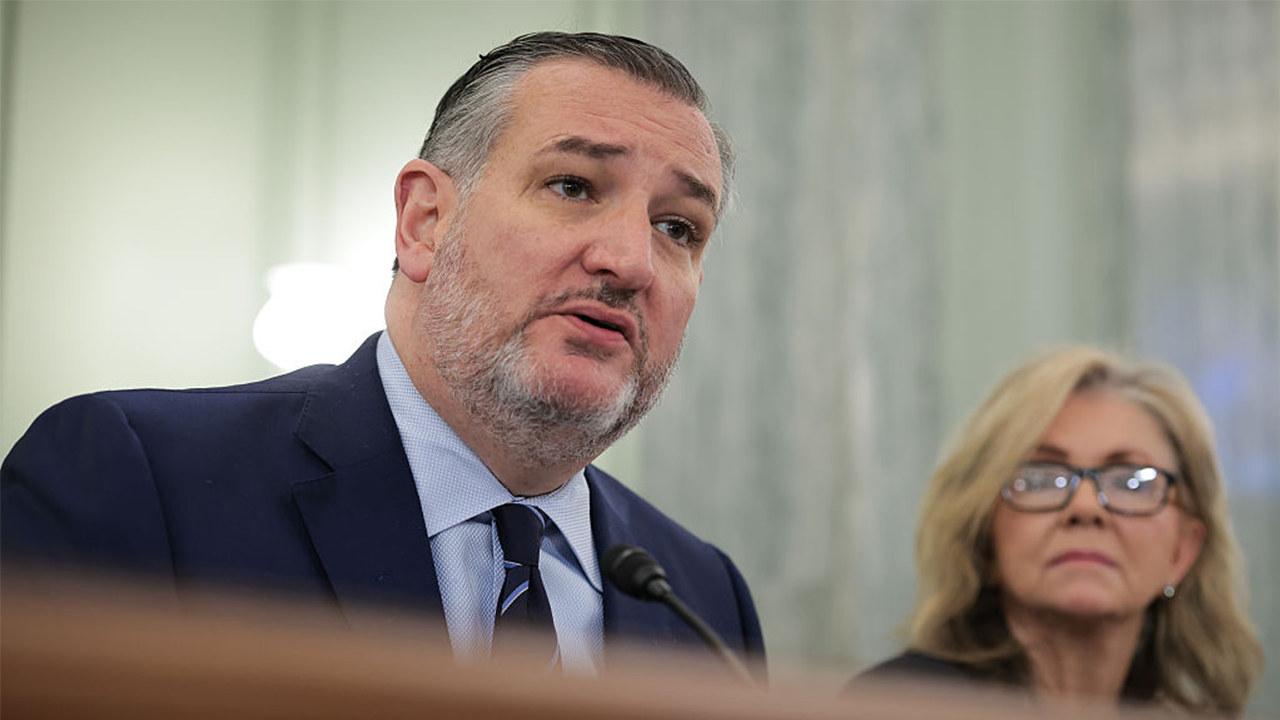Labour braces for biggest rebellion of Starmer era over welfare reform


Today’s rumours aren’t going out in this weather
Manchester United’s search for a suitable striker continues to occupy the minds of the gossip-mongers, with Ollie Watkins now reported to be firmly on Ruben Amorim’s radar. As United toil to get a deal for Brentford’s Bryan Mbeumo over the line, amid rumours the Cameroon striker might be persuaded to remain in west London, Aston Villa’s Watkins has emerged as a strong target, the Athletic reports. A deal may however be dependent on Rasmus Højlund being bundled out of the Old Trafford exit door.
United also continue to be dogged by the “How do you solve a problem like Marcus Rashford?” conundrum; the striker faces starting the season at Old Trafford because Aston Villa will not be taking up the £40m option to sign him.
Continue reading...
© Photograph: David Davies/PA

© Photograph: David Davies/PA













One of the consequences of Israel’s 12-day conflict with Iran was a drop-off in attention paid to the war in Gaza, where a terrible humanitarian situation deteriorated even further. This is a timeline of what happened
In the weeks leading up to Israel’s war with Iran, which it launched on 13 June, there had been little let up in its offensive in Gaza. A tenuous ceasefire had broken down in March, followed by a wave of airstrikes, as well as an 11-week blockade on all aid. Though some humanitarian assistance was allowed in from late-May, military action intensified at the same time.
Growing numbers of desperate Palestinians were being killed as they sought scarce food either from looted aid convoys or from distribution hubs set up by the new, secretive Gaza Humanitarian Foundation, a group backed by Israel and the US as an alternative to the existing, much more comprehensive UN-led system. Rolling IDF “evacuation orders” covered much of the territory.
Continue reading...
© Photograph: Anadolu/Getty Images

© Photograph: Anadolu/Getty Images
Scotland full-back earmarked for weekend match
Untested pairing of Gibson-Park and Russell face Reds
To say the last couple of days have been a blur for Blair Kinghorn is putting it mildly. As recently as the early hours of Sunday he was celebrating Toulouse’s Top 14 title success in Paris and doing interviews clad only in a pair of budgie smugglers. Now here he is wearing a British & Irish Lions tracksuit, squinting into the Australian sunshine and trying his hardest to focus on the next onrushing target.
The Scotland full-back, the last originally-chosen squad member to arrive, will not be involved in the Lions’ midweek game against the Reds but is earmarked to feature against the Waratahs in Sydney on Saturday. All being well a potential slot in the Test XV could follow but even for a class act like Kinghorn it is going to take a lot of frantic paddling below the surface to get up to speed.
Continue reading...
© Photograph: David Gray/AFP/Getty Images

© Photograph: David Gray/AFP/Getty Images
A deeply researched history that examines colonial and post-colonial faultlines, from Aden to Myanmar
Earlier this summer, amid renewed tensions between India and Pakistan following a terrorist attack in Indian-administered Kashmir, Donald Trump remarked that the two countries had been fighting over Kashmir for “a thousand years”. It was a glib, ahistorical comment, and was widely ridiculed. Shattered Lands, Sam Dalrymple’s urgent and ambitious debut, offers a more comprehensive rebuttal. Far from being a region riven by ancient hatreds, the lands that comprise modern India, Pakistan, Bangladesh and Myanmar – as well as parts of the Gulf – were divided up within living memory from an empire in retreat.
“You can’t actually see the Great Wall of China from space,” Dalrymple begins, “but the border wall dividing India from Pakistan is unmistakable.” Stretching more than 3,000km and flanked by floodlights, thermal vision sensors and landmines, this is more a physical scar left by the hurried dismantling of British India than a traditional geopolitical divide. What might now seem like natural frontiers were shaped by five key events: Burma’s exit from the empire in 1937; the separation of Aden that same year, and of the Gulf protectorates in 1947; the division of India and Pakistan, also in 1947; the absorption of more than 550 princely states; and, in 1971, the secession of East Pakistan. Neither ancient nor inevitable, these lines were hastily drawn in committee rooms, colonial offices and war cabinets.
Continue reading...
© Photograph: Hindustan Times/Getty Images

© Photograph: Hindustan Times/Getty Images
Renewable energy and critical minerals projects often want to mine on sacred lands but minority groups are fighting back through the courts
Located in Wikieup, Arizona, at the meeting point of the Mojave and Sonoran deserts, H’a’Kamwe’ has for centuries had sacred significance for the Hualapai tribe. They regard the hot spring, fed by water naturally stored underground in volcanic rocks, as a place for healing that symbolises their connection to the land.
So when an Australian mining company announced plans to begin exploratory drilling for lithium at 100 locations on Hualapai land, including as close as just 700 metres from H’a’Kamwe’, they regarded it as a potential desecration.
Continue reading...
© Photograph: Bloomberg/Getty Images

© Photograph: Bloomberg/Getty Images











In one of the world’s ‘hottest hotspots’ of biodiversity, an all-female team have turned a patch of forest into a haven for orchids, ferns, succulents and carnivorous plants
The previous night’s heavy rainstorm had brought down several large trees in the forest and broken branches were strewn about the ground. Walking through the felled trees, Laly Joseph spotted an orchid clinging to one of the snapped boughs. She gently secured the plant and carefully transplanted it on to a standing tree.
At the Gurukula botanical sanctuary, where Joseph, 56, is head of plant conservation and the most experienced “rainforest gardener”, every plant is considered precious and an all-female team strives to give them the best chance of surviving an increasingly harsh climate.
Laly Joseph, the head of plant conservation at Gurukula Botanical Sanctuary, has spent most of her life learning about and caring for plants.
Continue reading...
© Photograph: Neelima Vallangi/The Guardian

© Photograph: Neelima Vallangi/The Guardian
From LeMond’s astonishing comeback to Cavendish’s four victories, the final dash up the great avenue is now part of race folklore
It is impossible now to conceive of the Tour de France without two things: the race leader’s yellow jersey and the finale on the Champs-Élysées, a spectacle that is half a century old this summer. The finish has moved away from the great avenue once in the last 50 years, during the Olympic buildup in 2024, and the Tour cannot really be imagined without that final dash up the great avenue with its high-end shops and cafes, its gardens and plane trees.
The Tour had always finished in Paris, postwar on the velodromes at the Parc des Princes and the Cipale velodrome in the Bois de Vincennes, and it had frequently used the Champs for a ceremonial start; the idea for an “apotheosis” on the great avenue seems to have been inspired by the 1974 Giro d’Italia, which included a circuit race within Milan. The suggestion came from a television presenter, Yves Mourosi, who then had the honour of announcing the venture on his 1pm news show in November 1974.
Continue reading...
© Photograph: Graham Watson

© Photograph: Graham Watson




Amadou Seini scores in Australia’s basket at U19 World Cup
Cameroon were six points up with less than a minute left
Australia’s brightest men’s basketball prospects, including the younger brother of an NBA star, survived a double-overtime thriller to record their first victory 101-96 at the Fiba Under-19 World Cup in Switzerland.
But the game will be remembered for the unusual help that triggered the Australians’ late comeback.
Continue reading...
© Photograph: FIBA Basketball

© Photograph: FIBA Basketball
Seven inspired wins, David Beckham in the royal box and 10,000 fans at Wimbledon Park meant a memorable start to SW19
It might sound implausible, but this was a day where Wimbledon, that most quintessential of British sporting institutions, felt even more British than usual. The queues were lengthy, the weather hitting record-breaking heights. And over a glorious day of action, the All England Club reverberated to the rare sound of unheralded British players shattering expectations – and ripping up the record books.
By the time Katie Boulter left Centre Court with the cheers still ringing in her ears after defeating the No 9 seed Paula Badosa, there had been a magnificent seven British victories on day one – the most in a single day in the open era.
Continue reading...
© Photograph: Ben Whitley/PA

© Photograph: Ben Whitley/PA







© Athit Perawongmetha/Reuters











A compulsive new history suggests the crimes of Ted Bundy et al were – at least partly – down to the air they breathed
In 1974, the year Caroline Fraser turned 13, Ted Bundy committed his first confirmed murders. Bundy was handsome, charming, extremely intelligent and sociopathic – “a sexual virus masquerading as a person”. There is persuasive evidence that he began killing much earlier but never this gluttonously. Almost all of his victims had long brown hair, parted in the middle. Sometimes he broke into the women’s houses while they slept, or snatched them off the street. Sometimes he would put on a sling or plaster cast and lure them into his car to help with some fabricated task. If one refused, he tried another, convinced that he would never be caught because they would never be missed. “I mean, there are so many people,” he reasoned. “It shouldn’t be a problem.” Fraser lived on Mercer Island, Washington, near Bundy’s first hunting grounds. Recalling the moment he was first charged with murder in October 1976, she writes: “Everybody knows somebody who knows somebody who almost went out with Ted Bundy.”
Bundy was one of at least half a dozen serial killers active in Washington in 1974. Within a few years, the state would produce the similarly prolific Randall Woodfield, known as the I-5 Killer, and Gary Ridgway, the Green River Killer. Its murder rate rose by more than 30% in 1974 – almost six times the national average. In Tacoma, the city where Bundy grew up, Ridgway lived and Charles Manson was incarcerated for five years before starting his Family, murder was up 62%. It was as if a malevolent cloud had enveloped the region.
Continue reading...
© Photograph: Alamy

© Photograph: Alamy
Serkan Nihat’s story follows a group of Turkish fugitives, but it bites off rather more than it can chew
The cinematic response to populism and incipient fascism worldwide over the last decade hasn’t fully mobilised – but this broadside on the authoritarian leanings of Erdoğan’s Turkey doesn’t pull its punches. (Unsurprisingly, it’s produced by a UK-based team.) It’s a shame then that, lambasting the effects on education, policing, freedom of expression and the demonisation of minorities, director Serkan Nihat is wedded to a hectoring, didactic method that dulls the audience’s engagement, instead of firing us up.
Nihat opts for the fragmented, multi-character narrative beloved of big-picture global film-makers in the 00s (think 21 Grams or Babel). Academic Hakan (Denis Ostier) becomes a fugitive after his pro-democracy lecture is invaded by regime goons. Hakan is later assaulted by vengeful cop Yilmaz (Murat Zeynilli), his one-time school bully, and then hooks up with another policeman, Mehmet (Umit Ulgen), also on the lam after a crisis of conscience about the politicisation of his work. The pair hole up in a safehouse full of migrants being chivvied to Greece by people-smuggler Sahab (Doga Celik). Meanwhile, Hakan and Mehmet’s wives find themselves targeted by the security forces in a clampdown.
Continue reading...
© Photograph: Serkan Nihat

© Photograph: Serkan Nihat
‘No resorts, no tourist traps and no fancy restaurants’ – the friends behind the Kids of the Colony YouTube channel go in search of real connections in their countries of origin
‘Kayum was my friend for years,” recalls Abubakar Finiin. “But when I met his grandad in Bangladesh, it just felt like I understood his whole story. I knew so much more about him as a person.”
This moment of connection captures the essence of Kids of the Colony, a grassroots travel series on YouTube created by three childhood friends from Islington: Abubakar, Kayum Miah and Zakariya Hajjaj, all 23. In a series of chatty vlogs that thrive on their offbeat humour and close friendship, the trio provide a rich travelogue of culture and identity as they explore the countries of their parents’ birth.
The idea came to Abubakar while contemplating his next steps after graduating from Oxford University in 2023. “I just thought about the places that we came from,” he says, reflecting on the layered identity of growing up in London with ties elsewhere. Abubakar is Somali, Kayum is Bengali and Zakariya is of Moroccan and English descent.
Continue reading...
© Photograph: Abubakar Finiin

© Photograph: Abubakar Finiin















An easy midweek meal that’s packed with flavour and texture
Crab deserves to be celebrated, but that doesn’t mean it has to be a super-fancy, laborious meal. Crab midweek? Yes, please, and fried rice is my fallback whenever I am in a dinner pickle. That’s not to belittle its deliciousness, complexity or elegance, though, because this spiced crab version can be as fancy as you like. That said, the speed and ease with which I can create a meal that I know everyone will love is the winning factor. Plus, I often have leftover cooked, chilled rice in the fridge, anyway, which is always the clincher (cooked rice has a better texture for frying once chilled).
Continue reading...
© Photograph: Matthew Hague/The Guardian. Food styling: Ellie Mulligan. Prop styling: Rachel Vere. Food styling assistant: Isobel Clarke.

© Photograph: Matthew Hague/The Guardian. Food styling: Ellie Mulligan. Prop styling: Rachel Vere. Food styling assistant: Isobel Clarke.
Exclusive: Shabana Mahmood told companies she wanted ‘deeper collaboration’ to tackle prisons crisis
Tracking devices inserted under offenders’ skin, robots assigned to contain prisoners and driverless vehicles used to transport them were among the measures proposed by technology companies to ministers who are gathering ideas to tackle the crisis in the UK justice system.
The proposals were made at a meeting of more than two dozen tech companies in London last month, chaired by the justice secretary, Shabana Mahmood, minutes seen by the Guardian show. Amid an acute shortage of prison places and probation officers under severe strain, ministers told the companies they wanted ideas for using wearable technologies, behaviour monitoring and geolocation to create a “prison outside of prison”.
Continue reading...
© Photograph: Danny Lawson/PA

© Photograph: Danny Lawson/PA
Asset manager Aberdeen’s surprise cut to funding research into inequality has left those that used its grants for good works reeling
The axe fell with shocking suddenness. On Thursday Aberdeen Group plc terminated its Financial Fairness Trust without notice and sacked the CEO, Mubin Haq, the chair and all the trustees, leaving eight staff dangling. The company tells me it plans to move in a different direction. That dreaded phrase marks the end of 16 remarkable years, during which the trust sponsored some of the most influential research into inequality and its financial causes.
Aberdeen is a wealth management and investment company. I admired its willingness to fund research not in its own immediate interest, but for the sake of social improvement, as a sign that decent capitalism was possible. Now that’s over. The mood has changed. Wildfires started by President Trump are engulfing global companies as his administration attempts to bar asset and retirement plan managers from considering environmental, social and governance (ESG) factors in investment decisions and targets private sector diversity, equity and inclusion (DEI) initiatives with executive orders. Companies doing good are at risk. I ask Aberdeen if that’s why it has shut down the trust. It denies it strongly, saying it is just a “natural evolution”.
Polly Toynbee is a Guardian columnist
Continue reading...
© Composite: Shutterstock / Alamy / The Guardian / Guardian design

© Composite: Shutterstock / Alamy / The Guardian / Guardian design








Last 16: Manchester City 3-4 Al-Hilal (aet)
Silva 9, Haaland 55, Foden 104; Leonardo 46 112, Malcom 52, Koulibaly 94
What a last-16 tie, what a triumph for Al-Hilal, what crushing disappointment for Manchester City who, as the contest aged, gradually lost shape and tempo and crumpled in this shock of the Club World Cup.
The killer blow of a breathless extra time featuring three goals was administered by Marcos Leonardo in the 112th minute. Renan Lodi curved a cross in from the left, Sergej Milinkovic-Savic rose and headed, Ederson palmed the ball out and the Brazilian struck his second goal of the contest. Leonardo headed for a corner flag to begin the Al-Hilal party and the camera panned to Phil Foden, who eight minutes before seemed to have saved City.
Continue reading...
© Photograph: Chandan Khanna/AFP/Getty Images

© Photograph: Chandan Khanna/AFP/Getty Images